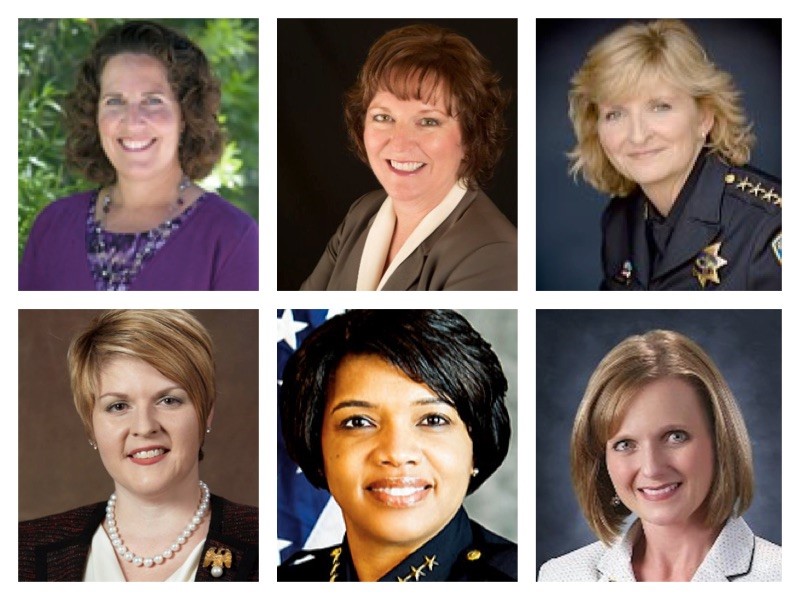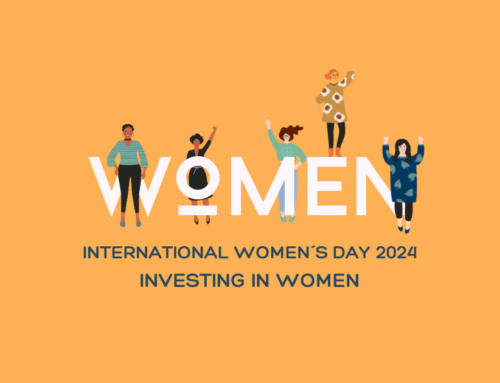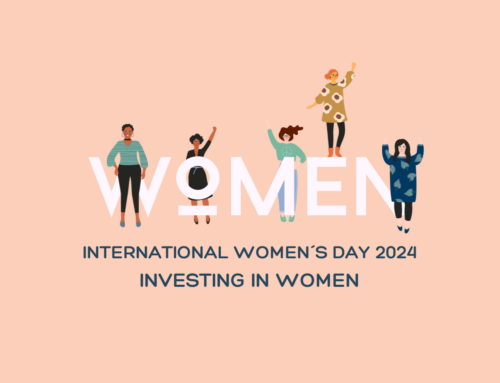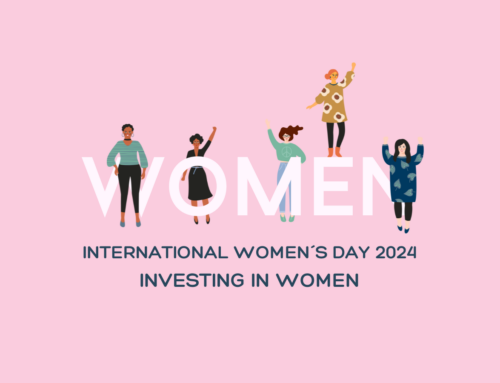“You must do the thing you think you cannot do.” – Eleanor Roosevelt
By Julie Underwood, Assistant City Manager – Daly City, CA
By now, many of you know that there hasn’t been many of us in the #13percent club . And I’m making an educated guess that this number is even smaller for female police chiefs and public works directors. Because this number is so small, logically many women in these roles have been “the first” in their respective organizations. For this article, I asked women across the country to share their stories and advice about being the first. I am indebted to them for their contribution to this article. If you know these awesome women, please join me in giving them one collective fist bump!
- Karen Daly, City Manager, Hutto, TX
- Eden Freeman, City Manager, Winchester, VA
- Brenda Garton, County Administrator, Frederick County, VA
- Lisa Goldman, City Manager, Burlingame, CA
- Julia Novak, President, The Novak Consulting Group, Cincinnati, OH
- Kris Overleese, Public Works Director, Kenmore, WA
- Jan Perkins, Senior Partner, Management Partners, Costa Mesa, CA
- Julie Robinson, City Manager, Dickinson, TX
- Denise Turner, Police Chief, Gilroy, CA
- Jeri Williams, Police Chief, Oxnard, CA
Breaking new ground
First, I wanted to know if they were aware that they would be the first woman in that role, if it played into their decision to apply, and if they were concerned that being a woman would be a disadvantage or barrier.
The majority of these women knew they would be the first woman in the top seat, but this did not deter them from applying. In fact, I was encouraged when Karen and Julia N. shared that they were both one of two female finalists when they were appointed. When Karen was appointed, the majority of the Council were female including the Mayor. Jan was the first female manager at Morgan Hill, CA and Fremont, CA. She said she was frequently asked, “What is it like being a woman city manager?” Jan’s response was always, “Since I’ve been a woman all my life, I’m just a city manager, which I’ve prepared for throughout my career.”
When Denise was appointed Police Chief in Shoreline, WA, she was one of two women chiefs in the entire state of Washington. When Eden was appointed in Winchester, VA, it was truly historic. It took Winchester 263 years to appoint their first female manager, so this was epic! To put this into perspective, George Washington was elected to his first public office in Winchester.
Jeri’s story was very inspirational. Jeri has the distinction of being the first woman and the first woman of color. I got chills when Jeri shared the story of her appointment to Police Chief. There was a large turnout for her promotion ceremony, and the most noticeable part was when she walked into the Council Chamber and she saw a few elderly African American women weeping. The enormity of this moment was a moving experience. She was honored for their pride and support. And while this was quite an honor for her, Jeri’s promotion as the first African-American female Commander for the Phoenix Police Department was one of her greatest successes. The community made a big deal about this too.
One amazing role model is Brenda, who was the first County Manager for four different Virginia counties. She was told by one Board member that he specifically voted to hire her in part because he wanted to break new ground by hiring a woman. Brenda stated, “I often get positive remarks from other women, both within the organization and in the community, who I believe feel encouraged to see a woman hired to head the organization.”
Unfortunately, some who went through a city manager recruitment felt like they were the “token” woman in the mix of candidates since they were often the only female, and often, the only assistant city manager. And being the token is not a good experience. Julia N. commented, “Until there are multiple women in the candidate pool, the playing field remains unleveled.”
Family support is critical
I also wanted to know if personal lives, like family and marriage, played a role in their decision to take on these demanding roles. In other words, how did their spouse or children factor into their decision to apply and/or accept the job. For the majority, personal factors were simplified if a spouse was predominantly responsible for the children and household or had a career that was flexible such as teaching or self-employment. And in some cases, there were no children or they were divorced. Many of the women spoke about involving their families in the decision to relocate, often bringing them to visit the area under consideration.
Would this be a concern if I were a man?
Needless to say, marital or familial issues cannot be discussed as part of an interview for obvious discriminatory reasons. However, I believe it is often an unspoken consideration, especially for female candidates. For example, when I went through my appointment as a first-time City Manager (and first female), a Councilmember asked my former boss, the then retiring City Manager, about my real interest in the job since I had just had a child about six months before. My boss replied, “Would you be asking this if she were a man?”
Brenda’s gut instinct told her that members of governing bodies wanted to know about her family situation. So usually she volunteered information about her family situation during the interviews – how many children she had, that she didn’t plan to have any more, her childcare situation, etc. She felt that she could at least be sure that these could not be the reasons she wasn’t offered a job.
Could we be experiencing implicit bias, where attitudes, stereotypes, or assumptions are influencing someone’s understanding, actions, and decisions in an unconscious way? Do we unconsciously assume that women are responsible for children and household matters, and therefore, cannot possibly commit themselves to a career? Is this a factor contributing to #13percent? I believe so.
Male mentors made a difference
Another question that I asked was: “What convinced you that you should take this next step in your career?” Much has been written about the differences between women and men with regards to this issue, with one widely read article being, The Confidence Gap in The Atlantic.
For Kris it was when her past (male) supervisor, someone who knew her well and who she trusted, who helped convince her. She said that it wasn’t that she lacked confidence; it was more about validation. Kris knew that she had worked hard to develop her skills and build a good network of professionals and peers to call on and it was validating when her boss and mentor confirmed her readiness.
I feel I cannot overstate the importance of having a mentor help get you to the next level. Eden said, “While serving as Assistant City Manager in Sandy Springs, Georgia, I was extremely fortunate to work for a City Manager (John McDonough) who is an amazing mentor. Having his confidence helped make the decision easier for me.” Denise had a similar response, “I had good mentors that encouraged me and helped me prepare for the selection process.” And speaking from my experience, my boss and mentor, Bob Olander, told me I was ready and capable; this built up the confidence I needed to apply and compete for the job.
In Jeri’s experience, by virtue of the field she is in, she simply had more male role models she looked up to. In fact, it meant a lot to her personally and professionally when the Police Chief in Phoenix, Jack Harris, put his trust in her and named her Assistant Chief.
For the women who had a chance to be in an acting role, they realized that they could do the job, and for some, they were just ready for the “big chair.” There were a few who didn’t know they were ready; it was more about an opportunity presenting itself.
You know more than you think you know – GO FOR IT!
When thinking of your next career move, here’s some advice for you. The theme I saw was the need to rely on your decision-making abilities and to not second-guess yourself. ICMA President Patricia Martel, City Manager of Daly City, CA (and my boss) says, “Fear is the greatest enemy of our self-confidence.” Brenda’s encouraging advice is be fearless: decide you can do the job. She says:
“You have to believe in yourself and to head into your interviews with confidence. If you don’t believe you can do the job, you will not be able to convince the governing body that you can. You might not get the job offer, but you certainly won’t get it if you aren’t even in the running! You may not have every single experience or skill that you want, but will anyone? This is not a profession for wimps!”
Eden says, “Be deliberate in your decision-making process. Take the time to learn as much as you can about the community and above all, make sure it is the right fit for you and your family.”
Lisa also says, “Don’t be afraid to try for the City Manager job, even if you’re worried that you’re not ready. Even the interview process is good experience. My male peers never seem to let that slow them down, but my female peers often wait until they’re more senior to try for the job.”
Karen shares, “Don’t second guess your decision to apply for the job. Women are sometimes the worst at finding that one skill on the job announcement that they don’t have experience with and deciding that they shouldn’t apply.”
Julia N. also says, “Apply!!!! Don’t hold back, if it is a job you want, go for it. You won’t get it if you don’t apply. If you DQ yourself from the very beginning it is no one’s fault but your own!”
And Julie R., again tells us, “Don’t be afraid to take the next step. If you see a position that you’re interested in, do your homework. Be sure it’s a good fit for you, and if so, go for it!”
Kris says, “Don’t wait until you feel you’re 100% ready. You’re never going to be 100%. There are things in your new job you just don’t know and will have to learn. You need to have a group of mentors you trust and who care about you as a person to provide you with helpful feedback and advice.” Jan also talked about readiness, she says, “Maintain your eye on the goal, prepare but don’t feel you need to ‘know it all perfectly,’ before taking the leap. You will never be completely ready, so just go for it.”
Keep advisors close, ask questions, set boundaries
So you have the job, now what? Here’s advice for after you’ve taken the next step and are in your new role.
Karen’s advice is, “Talk to your colleagues and lean on your mentors. You have to make things up as you go sometimes (we all do!), so make sure you have someone you can use as a sounding board.” Many of the women talked about the importance of being involved in their state’s professional associations as a way to maintain a network of supportive peers.
Kris said, “You can’t be afraid to ask questions. Admit you need to learn. You’re not expected to know everything. My biggest lesson that I learned is that I can figure it out, and I don’t have to figure it out by myself.” Eden agrees, and suggests the following:
“Never hesitate to ask questions, and don’t worry if you think your questions are trivial or that you’re asking too many. Take the time to listen and to get to know your staff and your community. Never underestimate the power of a handwritten note – in my first year I sent each staff member a congratulatory note on their service anniversary. It received such positive comments. And be sure to make eye contact when you’re talking to someone. A big part of what we do as chief executives is serving our communities and that means being able to communicate.”
Jeri says, “Don’t be afraid of the unknown, to make mistakes. Own your mistakes and move on. We can be our own worst critics. Also, I learned to accept help and to stop feeling guilty that I wasn’t super mom (I finally hired a housekeeper!). I also advise you to not take yourself so seriously. Be smart enough to ask others for advice.”
Julie R. advises us to have a peer that you can consult with who is in your corner. And definitely make sure this person is outside of the organization. Julie also advises us to, “Set boundaries. The City Manager sets the tone of what’s important. If you’re always working then that’s what your employees see. So make sure your employees see that you take time for yourself and your family.”
Denise’s sage advice is, “Listen, watch, and learn. Keep your thoughts private. Don’t complain; don’t compare this to the old job/agency. Don’t gossip. Love your people and show you care. Don’t get an ego. Smile, laugh, and have fun. Lastly, be open to input and to change. You decide on what you want to do with it!”
No one set out to be “the first”
The most interesting commonality about all of these women is that none of them set out to be “the first.” I get that. I never had the personal goal of becoming the first female city manager for my city, and yet, I was. And when this happened, I suddenly became quite conscious and fearful of making all kinds of mistakes that would screw it up for the next woman. I’m proud to report that the Council appointed another competent and awesome woman after my departure, my Assistant City Manager Debbie Tarry.
We are truly impressed when we see women enter professions that are typically dominated by men. Noteworthy “firsts” this past year were Capt. Kristen Griest and First Lt. Shaye Haver, who graduated from the U.S. Army Ranger School as the first female students ever to complete the grueling course. And Jen Welter became the first female coach and Sarah Thomas became the first female referee in the N.F.L. Their “firsts” highlight how important it is to be willing to step up.
I’m not saying that it will be easy. It’s not. But I’m convinced that as more women enter these typically male professions the easier we’re making it for more women to join the club. Some of the women I interviewed made a point of calling out the importance of coaching and helping the next generation of women. Jeri says, “It’s all our responsibility to share what worked for us with others. We can’t sit back on our laurels and say, ‘I made it, I’m done.’ It’s time for us to be role models for others.” Brenda says, “It’s time to push the women in our organizations to grow and expand (and men too for that matter).” Pat Martel says, “People can’t aspire to be what they don’t see.”
As we start a new year, consider stepping up and being “the first.” If we did it, you can too. Won’t you join us?
__________
Want to share YOUR story? We think it’s important and we’d LOVE to hear it. For more information about submitting a blog post click HERE. Blog post or article already written? Schedule a date by clicking HERE.






